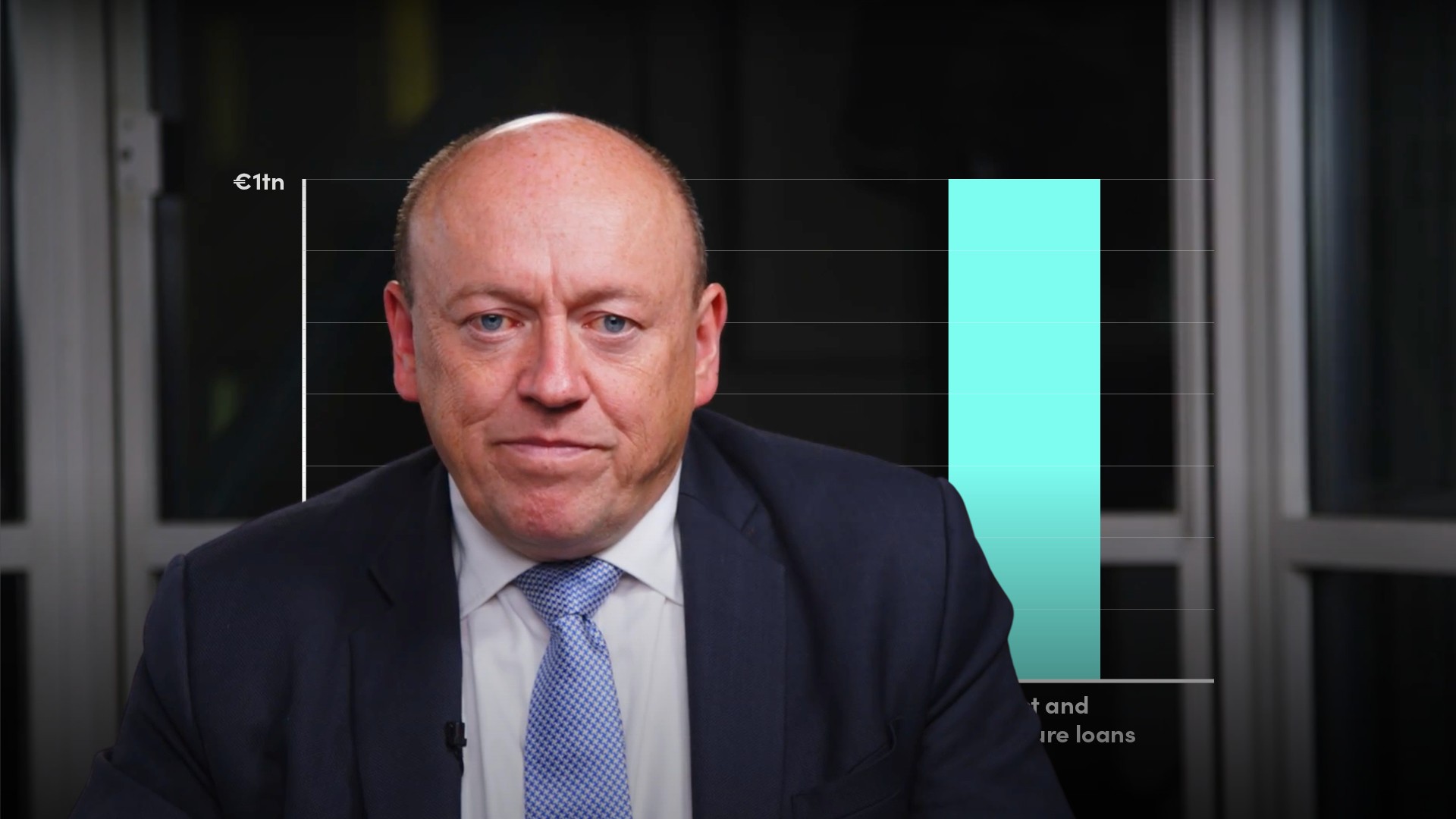
Covered Bonds and European Secured Notes (ESNs)

Richard Kemmish
30 years: Capital markets & covered bonds
There is a lot of discussion about introducing new types of covered bonds backed by different asset classes. To distinguish this idea from traditional covered bonds, most people refer to the proposed bonds as European Secured Notes or ESNs. In this video, Richard takes a look at the prospects for the European Secured Notes market and what it might look like.
There is a lot of discussion about introducing new types of covered bonds backed by different asset classes. To distinguish this idea from traditional covered bonds, most people refer to the proposed bonds as European Secured Notes or ESNs. In this video, Richard takes a look at the prospects for the European Secured Notes market and what it might look like.
Subscribe to watch
Access this and all of the content on our platform by signing up for a 7-day free trial.

Covered Bonds and European Secured Notes (ESNs)
7 mins 40 secs
Key learning objectives:
Explain the new asset class and its disadvantages
Identify cases whereby ESNs have been mirrored before, and the people most likely to use it today
Describe the structural differences between ESNs and traditional covered bonds
Outline the success prospects of ESNs and what it depends on
Overview:
Covered bonds are traditionally backed mainly by residential mortgages and public-sector loans. However, European Secured Notes are new types of covered bonds that are backed by loans to small and medium enterprises.
Subscribe to watch
Access this and all of the content on our platform by signing up for a 7-day free trial.
Has this idea been tried before?
There have been a handful of deals that look a bit like ESNs. These are the following:
- In 2013, Commerzbank issued a bond structured under contract law which used loans to SMEs as collateral
- Turkish covered bond law allows loans to SMEs as eligible collateral
- Central banks of Italy and France both allow banks to pledge portfolios of loans as security for advances
- Most Central banks allow securitisations as collateral
- In 2016, the covered bond law in Italy was amended to allow loans to small companies as eligible collateral
What asset class have ESNs proposed to cover that traditional covered bonds do not include?
Loans to small and medium-sized businesses will be used as collateral for covered bonds. These loans are typically relatively safe and granular – and therefore, the pool isn’t exposed to any single large risk and there are plenty of them. European Banks hold about 3 trillion euros of this asset.
What are some of the issues surrounding ESNs?
- They will probably never be as good as traditional covered bonds
- Mortgages are safer than unsecured loans to companies
- Issuers will need to post more collateral to satisfy the rating agencies
- Issuers will have to pay more interest to investors to get them to buy the bonds
Which entities are most likely to use ESNs?
- Banks who don’t have access to traditional covered bonds
- Banks who don’t have any qualifying mortgages or who have used them all up for their existing covered bonds
- Banks in countries where there are big question marks over the quality of the mortgage market
Are there any structural differences between ESNs and traditional covered bonds?
- LTVs – These do not exist for SME loans and thus make it difficult and complex for banks to ensure investor protection
- SMEs are shorter-dated – The loans to SMEs are shorter than most covered bonds outstanding today. For example, how do you structure a 10-year bond based on a 3-year loan?
- SME loans are more diverse than residential mortgages across Europe
- ESNs backed by infrastructure loans will be different in that their assets are much larger, less standardised, and more difficult to analyse than mortgages
What does the future look like for ESNs?
The success of European Secured Notes depends on a wide array of variables – one being the regulatory treatment it receives. If ESNs get preferential treatment as it is the case for covered bonds, we will likely see it flourish. For example, the exemption from bail-in under bank resolution rules.
It also depends on whether ESNs are supported and backed by the European Commission and Parliament.
Subscribe to watch
Access this and all of the content on our platform by signing up for a 7-day free trial.

Richard Kemmish
There are no available Videos from "Richard Kemmish"



























